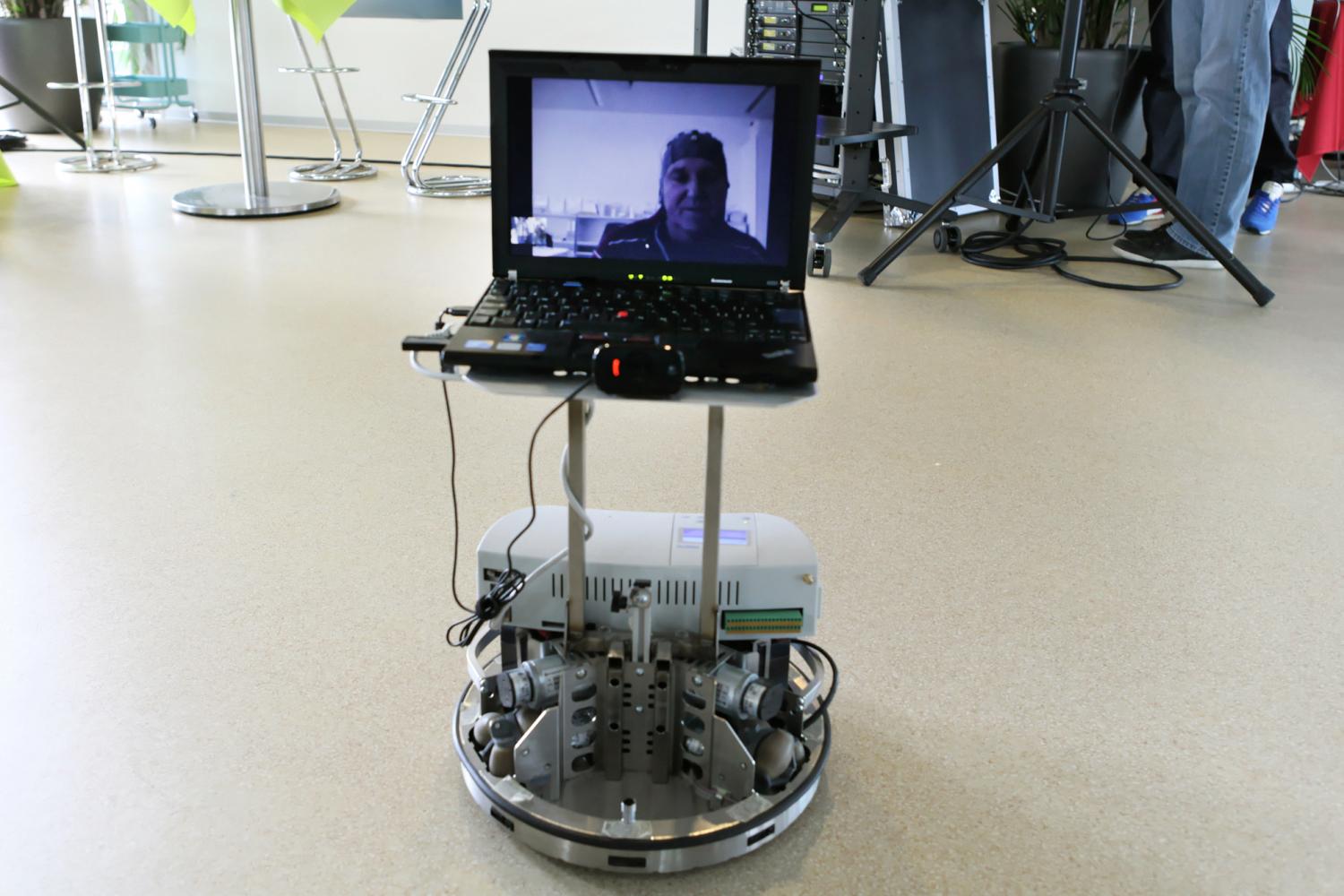EPFL‘s José del R. Millán is developing a brain-computer interface that allows those with paralysis or limited mobility to control telepresence robots. The goal is for the robot to assist the disabled with daily tasks, helping restore a feeling of independence.
9 disabled people, and 10 people without disabilities, from 3 countries, wore hats with electrodes that analyze brain signals. Their thoughts were communicated to the robot in real time from their country. Because of its video camera, screen and wheels, the robot was able to film as it moved, while displaying the face of the remote pilot via Skype. The person at the controls, as if moving in place of the robot, was able to interact with whomever the robot encountered. The robot is able to avoid obstacles by itself, even when told not to.
Quadriplegic users were able to perform complex tasks, remotely, using only their thoughts. The study revealed no difference in piloting ability between mobile and disabled subjects.
